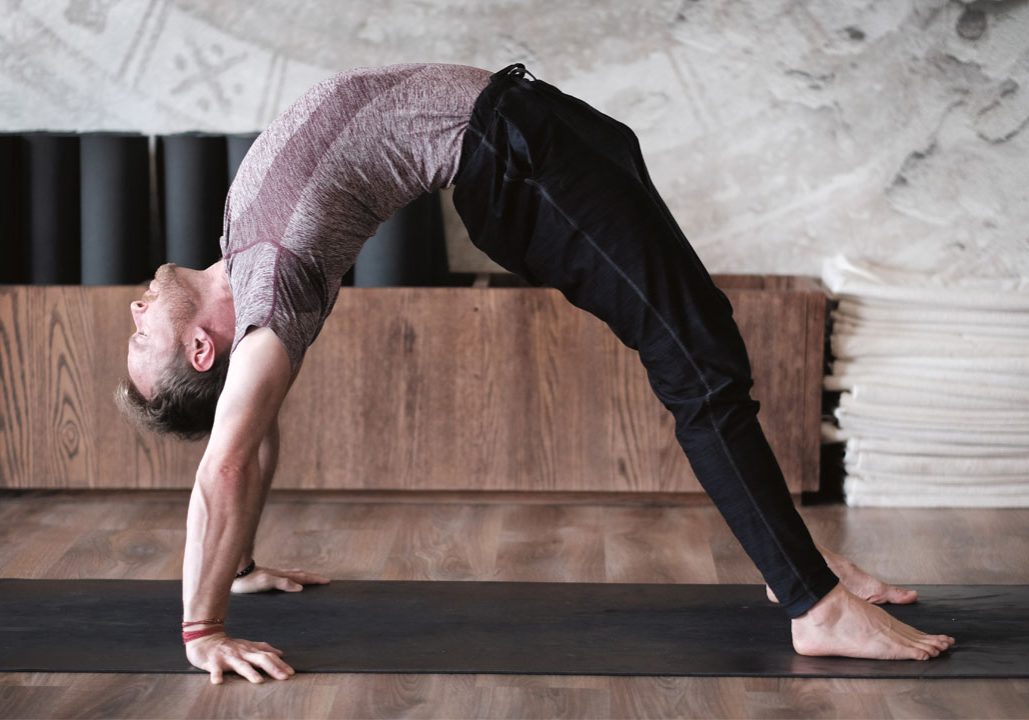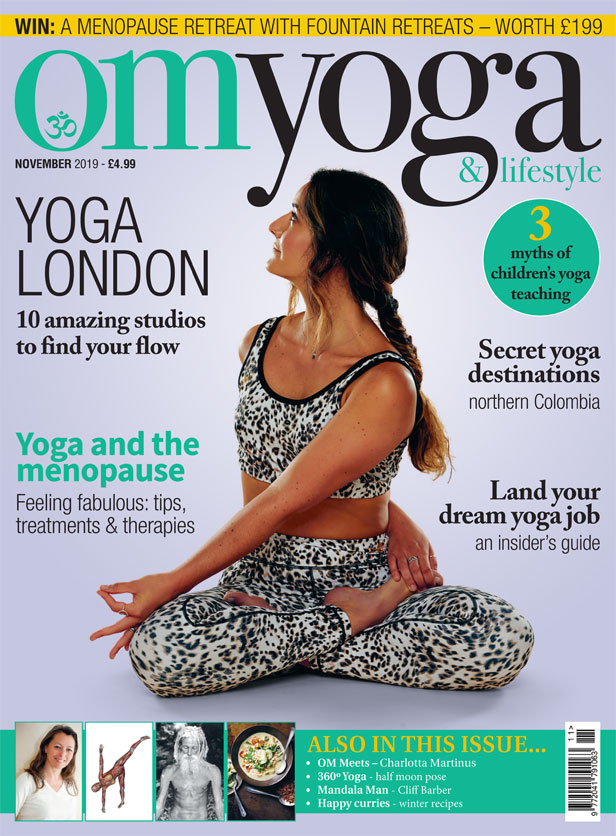DAVIN JONES IS THE MAN ON THE MAT
Full wheel (urdhva dhanurasana)
Benefits
Urdhva Dhanurasana in yoga is considered as one of the peak backbends in the asana family. This posture provides a strong opening to the anterior chain of the body: hips, spine, chest and shoulders. The space created in these areas allows a relieving break to those parts of the body that get good at sitting. If I’m looking to reverse the effects of a long day of travel, or a ‘typical’ modern day of sitting down in a chair, then this posture provides an opening in all the areas that shorten due to too much sitting.
Common mistakes
Due to the nature of this peak posture, attempting this asana without sufficient focus on the movement of the spine, the wrists and the shoulders can lead to unnecessary strain in one of these areas of the body. When I sequence this posture, I’ll be quite diligent in preparing the wrists for increased extension, increased flexion of the shoulder and experimenting with what position of the pelvis gives the practitioner freedom, and space in their lower and mid spine. Common mistakes quite often seen include: practitioners turning fingers towards the centre of the mat (internal rotation of the shoulder), allowing the thigh bones (femurs)/hips to externally rotate too much, and compressing into the lower vertebrae due to lack of pelvic tilt.
Tips
- Practice ‘easier’ poses of the backbend family to familiarise the body.
- Include backbends such as Cobra, Locust, Bridge pose prior to Urdhva Dhanurasana.
- Experiment with what degree of posterior tilt (tuck the tailbone) feels good for you in the pose. Each practitioner will be different.
- Whilst in the pose, try to counteract strong hip external rotation. Do this by pressing down through the mound of the big toes and draw the inner thighs towards the midline of the body keeping legs hip-width distance apart.
- Turn fingers away from midline and towards the long edge of the mat (external rotation of shoulder).
Awareness
Be patient with this backbend. Some days my spine takes longer to ‘warm-up’. The less I force the extension of the hips/spine and think of evenly spreading the effort throughout the pose - shoulders, spine and legs - this asana becomes a delight rather than just being a testament to prove oneself. The awareness in this pose requires a ‘stepping back’ and then through repetition, the space and eventually the ease is created in the posture.
Yogi: Davin Jones (davjonesyoga.com) @davjonesyoga
Photographer: Salma Othman @salma.ohm.yoga



